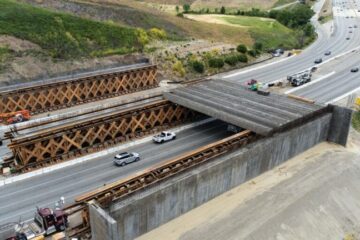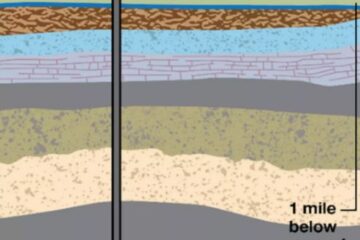California issues proposed rules for ‘fracking’
California Gov. Jerry Brown’s administration proposes rules that would require more disclosure from oil companies in the state that employ hydraulic fracturing, also known as ‘fracking.’
Source of this article: The Los Angeles Times, December 19, 2012
SACRAMENTO — Under pressure from state lawmakers and environmentalists, Gov. Jerry Brown’s administration released draft regulations for hydraulic fracturing, or “fracking,” the controversial drilling process driving the nation’s oil and gas boom.
The proposed rules, released Tuesday, would require energy companies to disclose for the first time the chemicals they inject deep into the ground to break apart rock and release oil. They also would have to reveal the location of the wells where they use the procedure.
Though fracking has unlocked vast amounts of previously unreachable fossil fuels elsewhere, environmentalists and public health advocates in California have raised safety questions about the hundreds of chemicals used — many of them known carcinogens — and the potential for drinking water contamination.
Jason Marshall, chief deputy director of the state Department of Conservation, said the proposed rules were important to assure the public that “when this practice is engaged in, it is engaged in safely.”
The disclosure requirements would put California in line with at least nine other states that have such guidelines. The proposed regulations come as energy companies tout the technology’s potential to tap the state’s Monterey shale, the largest oil shale formation in the continental United States.
According to the U.S. Energy Information Administration, the formation, which runs from Northern California to Los Angeles, contains 15 billion barrels of oil — or 64% of the country’s deep-rock deposits.
Environmental and industry groups said the draft regulations were a good first step in what is expected to be a lengthy rule-making process. But environmentalists signaled a coming fight over the level of disclosure, noting a provision that would allow oil companies to withhold disclosure of chemicals they claim to be proprietary.
“The road we’re headed down will heap a cloak of secrecy around trade secrets,” said Bill Allayaud, a lobbyist for Environmental Working Group.
A recent analysis by Bloomberg News found that companies nationwide withheld from their disclosure reports one out of every five chemicals they used in fracking.
The issue was a sticking point in talks over disclosure legislation that died in the last legislative session. Energy firms and oil field service companies have said the trade-secrets clause is necessary to protect their proprietary “recipes.”
Regulators said they would retain the right to challenge those claims and compel disclosure to state authorities and emergency responders in the event of a spill or accident. They also emphasized new requirements for oil companies to test the integrity of their wells before fracking to guard against leaks and to report the results of those tests to regulators before they begin operations. The mandate would be the strongest of its kind in the nation, they said.
“We don’t want slipshod work done,” Marshall said.
Environmentalists also took issue with the timing and venue for disclosure, FracFocus, a national fracking registry the industry helped create online last year to allow for voluntary disclosure. Under the proposed rules, companies would have to disclose chemicals 60 days after completing fracking.
Lawmakers, who have said rules are long overdue for the third-largest oil-producing state in the nation, promised to convene legislative hearings next year to evaluate the draft regulations.
“It seems they’re heading in the right direction,” said state Sen. Fran Pavley (D-Agoura Hills), who has introduced legislation to require oil companies to issue advance notice when fracking. “But I want to see more transparency and disclosure to the public.”
As work continues on the regulations, oil companies are moving ahead with their plans.
Last week, energy firms sent representatives to a federal auction at the U.S. Bureau of Land Management in Sacramento. There, in a cramped conference room behind the employee cafeteria, bidders competed for the right to sink exploratory wells in the Monterey shale.
Nearly 18,000 acres were leased in 10 minutes.


